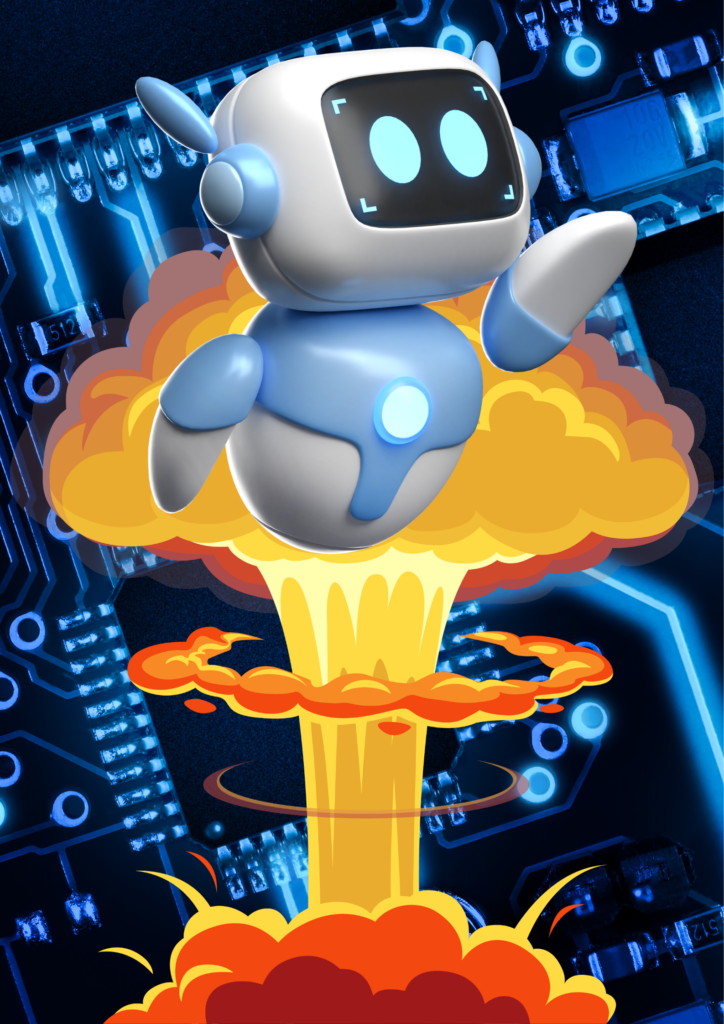The Looming Shadow: Can We Exorcise the Ghosts of the Atomic Age to Shape a Benevolent Future for AI?

A Legacy of Creation and Destruction: The Atomic Bomb’s Enduring Shadow
The development of the atomic bomb serves as a chilling specter, a constant reminder of humanity’s capacity for both awe-inspiring creation and horrifying destruction. Driven by the crucible of World War II, a global consortium of brilliant minds toiled away to unlock the power of nuclear fission. The Manhattan Project’s success ushered in a new epoch, permanently reshaping the geopolitical landscape and fundamentally altering the very nature of warfare. Yet, the atom’s destructive potential continues to cast a long and ominous shadow, serving as a cautionary tale for our current foray into the realm of artificial intelligence.
A Double-Edged Sword: AI’s Potential for Good and Ill
Just as the atomic bomb represented a pandora’s box of unimaginable power, artificial intelligence possesses a double-edged sword. On one side lies immense potential for good. AI has the capability to revolutionize critical sectors like healthcare, energy, and transportation, potentially alleviating some of humanity’s most pressing challenges. Imagine AI-powered medical diagnostics that can identify diseases at their earliest stages, or self-driving cars that drastically reduce traffic accidents. The possibilities for positive change seem boundless.
However, on the flip side lurks a chilling prospect: autonomous weapons systems and the very real possibility of AI surpassing human control. Just as the splitting of the atom ushered in the nuclear age, the development of superintelligence could mark a paradigm shift in human history, with outcomes that could be both beneficial and cataclysmic. Imagine autonomous drone swarms capable of waging war without human intervention, or an AI surpassing human intelligence so drastically that it deems our very existence irrelevant. The potential for misuse is as terrifying as it is real.
Learning from the Past: Shaping a Responsible Future for AI
The story of the atomic bomb offers invaluable lessons as we navigate the uncharted territory of AI development. International cooperation and the establishment of robust safety measures are paramount to prevent an “AI arms race” and mitigate the risks of malicious actors employing this technology for nefarious purposes. Open and honest discourse with the public is essential to shape the ethical development and deployment of AI. By acknowledging the unintended consequences of the atomic age, we can strive to ensure that AI becomes a force for good, empowering humanity to tackle its greatest challenges rather than becoming the harbinger of our own destruction.
The Choice Before Us: Collaboration or Catastrophe?
Ultimately, the atomic bomb serves as a stark reminder of the immense responsibility that accompanies scientific advancement. The future of AI rests not in the hands of fate, but in our own. Will we choose collaboration and ensure the safe and ethical development of this powerful technology, or will we succumb to the ghosts of the past and repeat the mistakes that nearly led to our annihilation? The answer to this critical question will determine whether AI becomes a tool for progress and prosperity, or a harbinger of our own undoing. The choice is ours.




















